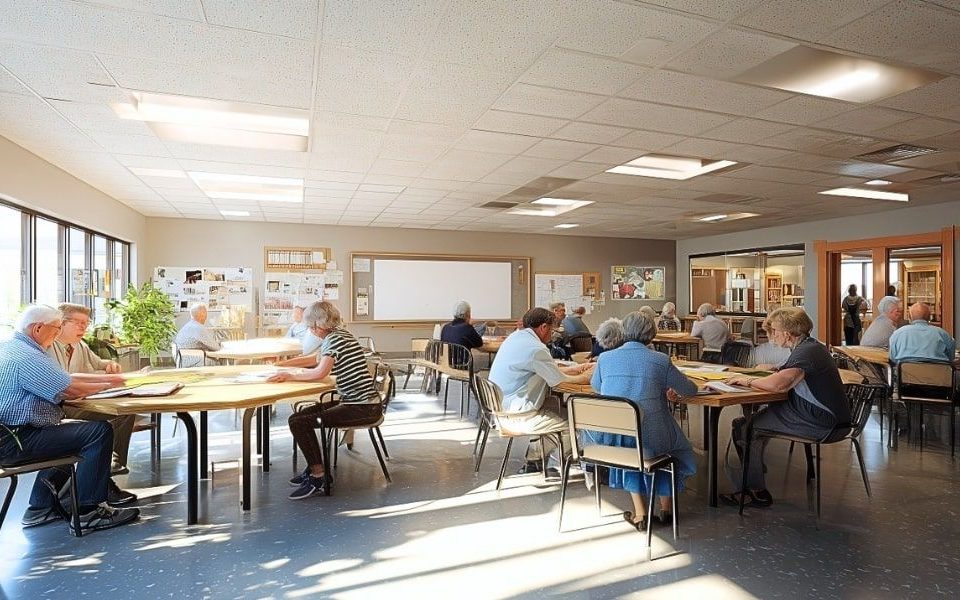
If your aging parent forgets appointments or repeats stories, dementia might be something to worry about, but maybe not. Mild Cognitive Impairment (MCI), which is worse than normal age-related memory loss but not as severe as dementia, could be the issue. While cognitive impairment in older adults is common, MCI does not mean your parents have lost their independence. Understanding the differences can help you make informed decisions about their care and whether a senior living community might offer the proper support.
What Is Mild Cognitive Impairment in Older Adults?
Mild Cognitive Impairment (MCI) is when a person has noticeable memory problems. They may also demonstrate greater difficulty in thinking than what is typical for their age. These issues do not prevent them from living independently. People with MCI may remain stable for years. However, others may develop dementia over time.
Common signs of MCI include:
- Forgetting appointments or conversations more often than usual
- Difficulty finding the right words
- Trouble following complex tasks, like managing finances
- Increased reliance on notes or reminders
- Mild confusion in familiar environments
Is MCI the Same as Dementia?
It is not. The key difference is that people with dementia struggle with basic daily tasks like cooking, dressing, or personal hygiene. Those with MCI may need extra time or reminders but can still function independently.
When to Consider Senior Living
If your parents have been diagnosed with MCI, they may not need immediate full-time care, but planning is crucial. Here’s how senior living can help:
1. Structured Support Without Full-Time Assistance
Many senior living communities offer independent or assisted living options where residents receive just the right level of support. Staff can provide medication reminders and assistance with daily routines while allowing your parents to maintain their independence.
2. Cognitive Stimulation and Social Engagement
Isolation can worsen cognitive decline. Senior communities provide social opportunities, brain games, and memory-enhancing activities to keep residents engaged. Regular interaction with peers and staff improves mental well-being.
3. A Safe and Secure Environment
Wandering or getting lost is rare in MCI, but some individuals may experience occasional disorientation. Senior communities offer safe, structured environments with security measures in place.
4. Easier Transition if Change is Needed
If MCI progresses to dementia, transitioning to memory care within the same community is often smoother than moving to a new facility. Many senior living communities provide a continuum of care, adjusting services as needs evolve.
How to Start the Conversation with Your Parents
Bringing up senior living with a parent can be delicate. Focus on how a move can enhance their lifestyle rather than emphasizing their limitations. Highlight social opportunities, reduced household responsibilities, and safety benefits.
Discover how The Mountain Side of Warm Springs fosters purpose and independence for our residents while providing personalized senior care. Explore our customized senior services to see how we support a fulfilling, enjoyable life. Are you interested in learning more about living at The Mountain Side? Learn more about our comfortable, thoughtfully designed suites.
We’d love to show you around—schedule a visit to Mountain Side today.



